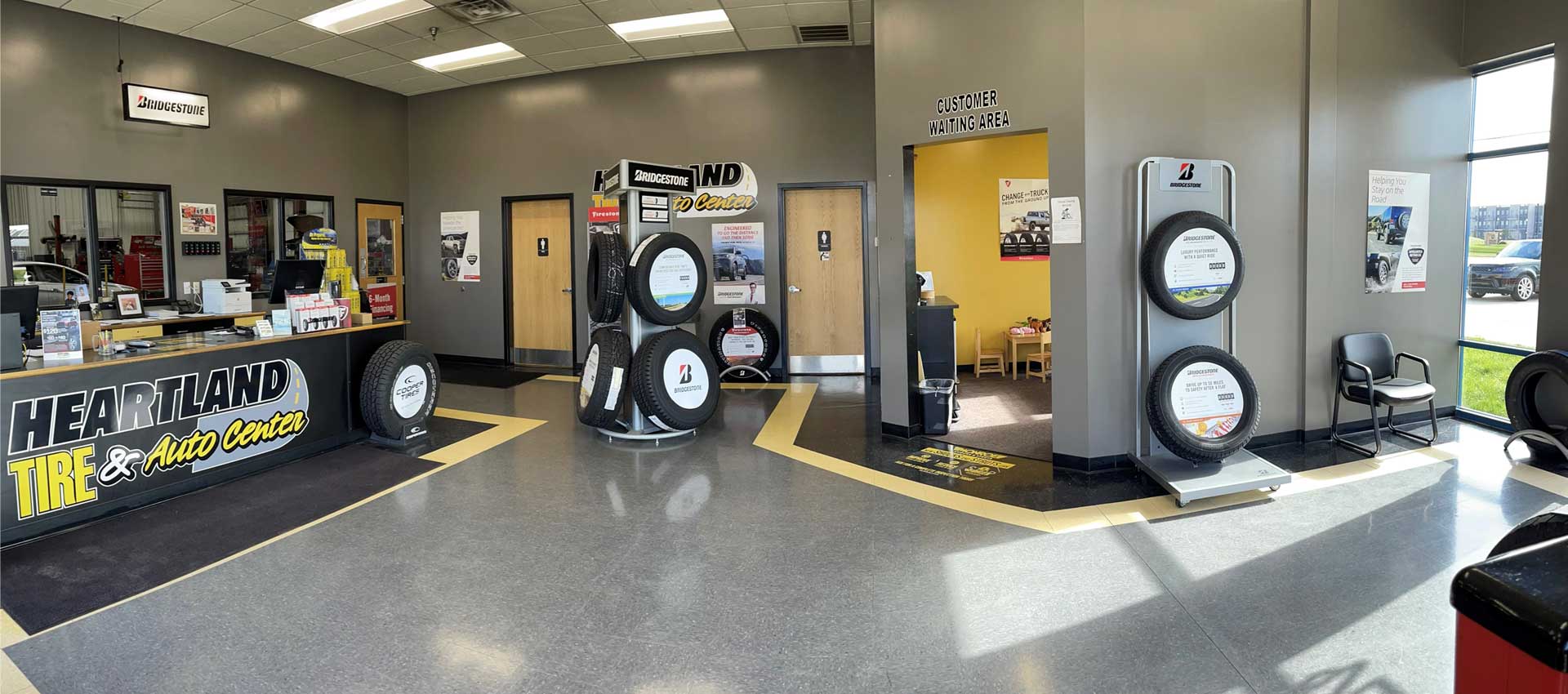Trusted Tire Shop Morris: Comprehensive Tire Solutions and Exceptional Service
Trusted Tire Shop Morris: Comprehensive Tire Solutions and Exceptional Service
Blog Article
Tire Service: The Impact of Weather Conditions
When it involves making certain optimal efficiency and security on the roadway, understanding the impact of weather on tire service is critical. From scorching warmth to icy roadways, each weather element can considerably influence tire functionality and overall driving experience. By diving right into the effects of varying weather condition conditions on tires, vehicle drivers can obtain beneficial understandings that might improve their vehicle's performance and durability. In this conversation, we will certainly explore the detailed partnership between weather and tire service, clarifying the value of weather-specific tire upkeep techniques and considerations.
Warm and Tire Performance
When exposed to high temperatures, tires experience adjustments in efficiency that can significantly affect vehicle security and handling. The warmth generated from long term driving or hot weather condition conditions creates the tire rubber to soften, leading to lowered step life and raised wear. As the rubber comes to be softer, the tire's grip when driving reduces, affecting stopping distances and general grip. In severe instances, too much heat can also create tire blowouts, posing a serious safety and security danger to the lorry and its owners.
Moreover, high temperatures can increase the procedure of tire aging, creating the rubber to weaken a lot more promptly. To mitigate the results of warmth on tire efficiency, motorists should frequently inspect their tire pressure, revolve tires to ensure also use, and evaluate for any kind of indicators of damage.
Cold Climate Impacts
Cold climate problems can have a substantial effect on tire performance and security. In chilly weather, tires might also shed air pressure much more rapidly, which can influence handling and fuel effectiveness.
To mitigate the effects of cool weather condition on tires, it is important to routinely inspect tire stress and inflate them to the maker's advised degrees. Using wintertime or all-season tires developed for winter conditions can likewise improve grip and grip on icy or snowy roads - discount tires morris il. Correct tire maintenance, consisting of routine examinations for wear and damages, ends up being much more vital throughout cooler months to make certain ideal performance and safety and security
Rainy Conditions Impact
Tires with damaged footsteps are more susceptible to hydroplaning, where a layer of water builds up between the roadway and the tire surface, leading to loss of traction. To battle this, chauffeurs must regularly inspect their tires for ample walk depth and take into consideration investing in tires particularly made for damp conditions.

Snow and Tire Security
Snow-covered roads position special obstacles for read the full info here drivers, stressing the value of correct tire choice and upkeep. When driving in snowy conditions, having the ideal tires can make a substantial difference in security and performance. Winter months tires are created with unique rubber compounds and tread patterns to give much better traction on snow and ice contrasted to all-season tires. The much deeper treads and sipes of wintertime tires assist grip the roadway much better, decreasing the risk of gliding and sliding.
Along with utilizing winter season tires, it is vital to ensure they are correctly inflated. Cold climate can create tire stress to go down, affecting grip and handling (tire shop morris). Routinely checking and keeping the right tire stress is important for ideal efficiency in snowy conditions

Weather-Related Tire Maintenance
When confronted with different weather, appropriate tire upkeep comes to be a vital aspect of car safety and security and efficiency. Weather-related tire upkeep includes a range of techniques focused on ensuring optimal tire function and long life in various weather scenarios. One key facet of weather-related tire maintenance is tire pressure regulation. Rising and fall temperatures can create tire stress to differ, impacting traction and fuel effectiveness. Routinely checking and readjusting tire stress according to supplier recommendations is important for risk-free driving in transforming weather. Furthermore, tire step depth plays a significant function in taking care of different weather aspects. Tires with ample walk depth provide much better grip on damp or icy roadways, minimizing the threat of hydroplaning or skidding. When walk wear reaches a specific deepness is essential for preserving traction and stability in unfavorable climate, examining tire walk on a regular basis and replacing tires. By prioritizing weather-related tire upkeep, motorists can improve safety, enhance vehicle performance, and lengthen the life expectancy of their tires.
Conclusion
To conclude, weather condition problems have a considerable influence on tire efficiency and security. From warmth affecting tire stress and put on to winter lowering traction, it is important to think about the weather condition when keeping and utilizing tires. Wet problems can reduce hold and bring about hydroplaning, while snow can boost the danger of accidents if tires are not properly furnished. Weather-related tire maintenance is critical in ensuring optimal efficiency and safety and security on the roads.
In this discussion, we will check out the intricate connection in between weather condition conditions and tire solution, shedding light on the significance of weather-specific visit our website tire maintenance practices and factors to consider.

Report this page